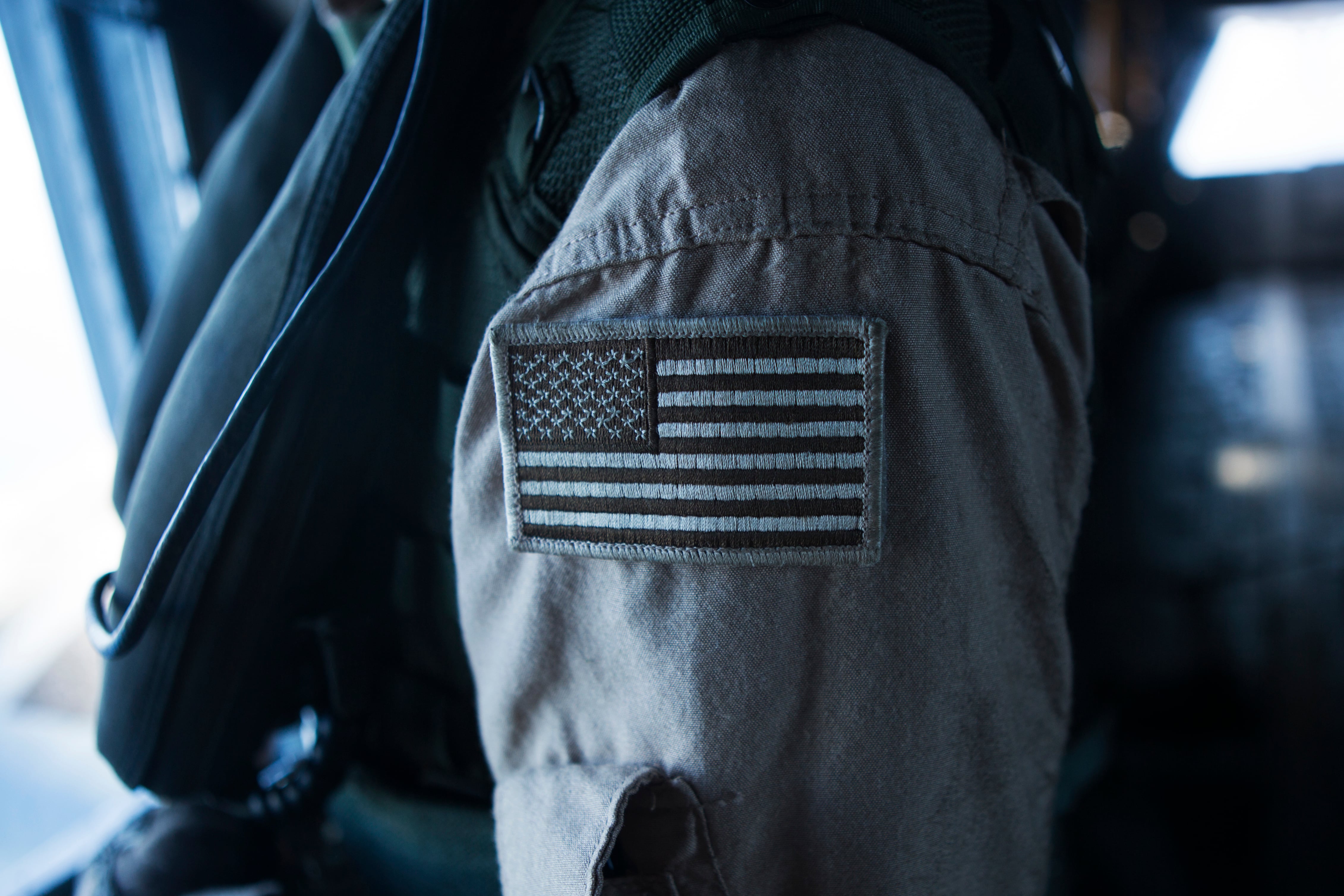Editor’s note: This article was first published in KFF Health News, a national newsroom that produces in-depth journalism about health issues. It is one of the core operating programs at KFF — the independent source for health policy research, polling, and journalism.
When Glenn Janssen decided to file a claim for disability benefits with the Veterans Affairs Department last year, he dreaded the prospect of dealing with federal bureaucracy and paperwork.
Janssen, 57, lives in Portugal with his wife and has worked as a government contractor since leaving the Army in 2004. The Gulf War-era and Louisiana National Guard veteran wanted to put in a claim for tinnitus and back and shoulder problems from his years in the service. But he worried that trying to manage the process from overseas would be a nightmare.

So, when another veteran, who’s also a trusted friend, suggested he contact a private company, Trajector Medical, to handle the filing process for a fee, it seemed like a great solution. He called and, after skimming the company’s contract, he signed up. That quick decision may cost him a bundle in both money and hassle.
“I was too trusting, and I didn’t really read what I signed,” Janssen said.
More than a quarter of the United States’ nearly 5 million veterans have a disability related to their military service, and they have various ways to file a claim for tax-free monthly disability payments.
The Honoring Our PACT Act, enacted last August, made it easier for many veterans who had been exposed to burn pits and other toxic substances to qualify for health care and disability benefits. The law added more than 20 conditions, from cancers to chronic respiratory illnesses, that the VA now automatically assumes were caused by serving in Vietnam and the Gulf War, or other postings.
Veterans can apply on their own, filling out paperwork online, gathering and submitting their medical records, and undergoing a medical evaluation. They can also tap into a network of thousands of service organization representatives, claims agents, and attorneys who have been vetted and approved by the VA to aid veterans. Under federal rules, veterans who use accredited assisters can’t be charged a penny for help filing the initial claim. If they subsequently want to appeal a VA decision, the agency limits how much the approved representatives can charge.
Unaccredited companies face no such restrictions. Sometimes calling themselves “medical consultants” or “coaches,” these businesses advertise their fee-based services to veterans, suggesting they can provide quick turnaround times on claims and higher benefit checks than if veterans choose a VA-approved representative.
“What we’ve seen are people signing away, in advance, a portion of the benefits that are due them,” said Jim Rice, assistant director of the Office of Servicemember Affairs at the federal Consumer Financial Protection Bureau, regarding the practices of some of these companies. The CFPB and the VA jointly published a cautionary blog post in February, noting reports that “unscrupulous actors have misled some veterans into paying hundreds of thousands of dollars.”
To be eligible for disability payments, veterans must have an injury or illness caused or worsened by their military service. The Department of Veterans Affairs assigns veterans a disability rating from 0% to 100%, depending on the degree of disability. A higher rating means a higher monthly payment.
The contract that Janssen signed said he would pay Trajector Medical the equivalent of five times the amount of any increase in his monthly VA compensation, which is part of the basic billing structure the company outlined in 2022 congressional testimony. When he was awarded a 10% disability rating for tinnitus, the company billed $829.60, five times the monthly award of $165.92 for a 10% disability. When his rating was later increased to 40%, the company informed him he owed an additional $2,829.70, five times his monthly increase of $565.94.
The problem was that the company had done virtually nothing to help him, Janssen said. At the very beginning of the process, he said, it sent him what he thought looked like three boilerplate paragraphs describing his injuries. “All they provided was a cut-and-paste canned response in a VA form for me to submit,” Janssen said of what the company supplied last July.
In November, Janssen said, after months passed with no word on his case or assistance from Trajector, Janssen contacted the company to cancel his contract. But it did not respond to his request, he said.
On his own, Janssen said, he scheduled appointments and flew back to the U.S. for medical evaluations in December and February. Also on his own, he said, he filed secondary claims requesting an increase in his disability rating because of insomnia and migraines related to his tinnitus. (The VA denied his claims for back and shoulder injuries.)
It wasn’t until Janssen was approved for a higher rating from the VA that he said he heard from Trajector again. The company, which he said sometimes referred to him as a “battle buddy,” sent him an email congratulating him on his new disability rating and billed him more than $2,800 for its assistance in obtaining it.
“I called Trajector and raised bloody hell,” Janssen said. “I will never pay this money.”
In March, Trajector agreed to waive its claim for the additional $2,829.70. But it still wants $829.60 for his initial rating, and a company representative told him during a telephone conversation it would start charging a 1% monthly late fee.
Trajector declined a request to discuss its services and to comment on Janssen’s case. But in congressional testimony last year, Evan Seamone, Trajector’s general counsel and legal manager, said that “private sector companies like Trajector meet an important and unfulfilled need that is not being met by existing free resources.”
Still, Janssen is not the only veteran who is unhappy with Trajector services. It holds an A+ rating from the Better Business Bureau, but dozens of complaints have been filed with the organization that describe similar experiences. Trajector has responded with variations of this comment: “We have helped tens of thousands of veterans, like you, obtain the most accurate disability rating for their conditions. We apologize that you have not been satisfied with our customer service or overall experience.”
Veterans organizations have grown increasingly concerned about the activities of businesses not accredited by the VA promising such assistance.
“They are predatory companies that charge outrageous amounts to veterans to access their benefits,” said Ryan Gallucci, executive director of the Washington, D.C., office of Veterans of Foreign Wars, an accredited veterans service organization with more than 2,300 representatives worldwide. Gallucci made similar comments in his April 2022 Capitol Hill testimony about unaccredited assisters.
Of the 280 complaints sent to the VA Office of General Counsel from 2018 to 2022, 40% were related to unaccredited individuals and organizations, according to Randal Noller, a VA spokesperson.
Representatives for some unaccredited companies say most private operators are honorable and that the whole group is being targeted because of the activities of a few bad actors.
Veterans Guardian VA Claim Consulting, another unaccredited company, has a similar billing structure to that of Trajector, charging clients a fee equal to five months’ worth of any benefits increase they receive. It takes a holistic approach to helping veterans whose cases may be complicated because they left the military years ago, for example, or are hoping to increase their existing disability rating or receive compensation for other conditions related to their service, said Mark Christensen, the company’s chief of staff.
Veterans service organizations are well suited to help recently discharged veterans file initial claims, which are typically straightforward, Christensen said, referring to accredited groups such as the VFW or Disabled American Veterans. But they may not be as effective at managing subsequent claims.
It may be faster to work with a private company as well, he said. Going through adjudication with a VA-accredited lawyer may take years, he said. “We can take care of it in six months,” he said.
According to the VA, there is no statistically significant difference in the average number of days it takes any type of filer to complete a rating-related claim. In the current fiscal year, time frames have ranged from 129.7 days to 139.4 days whether veterans make a claim unassisted (which would include those who use unaccredited representatives) or use VSOs, agents, or attorneys.
Many of Veterans Guardian’s clients had gone the free route initially, according to Christensen. In any given month, 60% to 70% of the company’s clients report they used a free service in the past, he said, but they often turn to his company to get a better disability rating or approval for secondary conditions.
Prominent veterans groups like the VFW, American Legion, and Disabled American Veterans are pressing for passage of the Guard VA Benefits Act, which would rein in certain business practices by allowing the Veterans Affairs secretary to impose criminal penalties on people who charge fees to help veterans file disability benefit claims without VA authorization.
Veterans Guardian supports changes that would allow unaccredited companies like itself to charge for services at any point in the process, as well as place caps on fees, and prohibitions on having doctors on the payroll or charging upfront fees. But the company doesn’t support the Guard Act.
The VA has tried sending cease-and-desist letters to unaccredited companies that the VA found to be preying on veterans, said Diane Boyd Rauber, executive director of the National Organization of Veterans’ Advocates, which trains accredited attorneys and agents.
“The problem is that the VA only has authority to go after someone who’s accredited,” she said. “Part of the intent of the Guard Act is to give the VA some teeth.”




